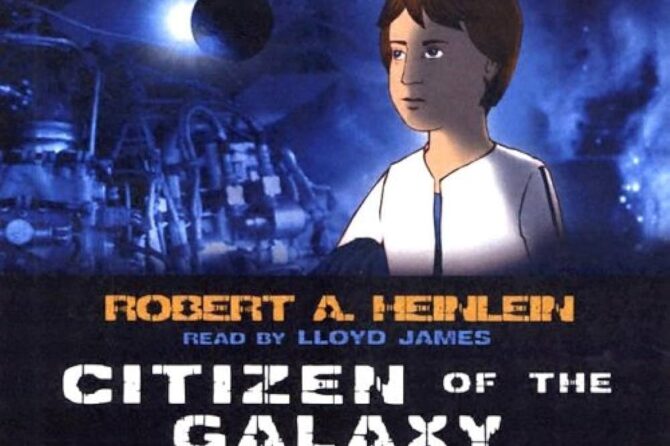Weber is noted for his best-selling, military science fiction series that features a strong female lead: Honor Harrington. This series will drag you into a variety of engaging naval themes:
1. the evolution, and promotion criteria, for command positions of increasing responsibility for naval officers;
2. the political—and competitive—environment of war upon naval officers;
3. how logistical problems affect strategic policies;
4. how weapons evolve in the course of war;
5. how tactical doctrine of a weapon evolves and how the military exploits a weapon’s offensive opportunities—or tries to offset its disadvantages and, finally;
6. how evolving technology impacts strategic planning. In Weber’s first novel of the series,
On Basilisk Station, Honor commands the Manticoran heavy cruiser, HMS Fearless, a warship refitted with experimental weapons. She finds herself assigned to Basilisk Station under the command of Lord Pavel Young, an aristocrat who once tried to rape her at the Saganami Island Naval Academy. Young, bitter over their shared past, departs for the shipyards, citing much-needed repairs for his starship, HMS Warlock. He cuts orders intended to overload Honor with missions she can’t accomplished.
Understaffed and short on resources, Honor does her duty in exemplary fashion. But her successful anti-smuggling operation incurs the displeasure of Manticoran politicians, business leaders, and naval officers that are Young’s patrons. Honor, discretely supported by the Admiralty to encourage her efforts, discovers a covert operation of the rival star nation, the Republic of Haven, which is engineering a pretext to seize her command. She stops the Havenites, but at the costs of many lives and the near destruction of her ship.
In The Honor of the Queen, war is about to break out with the Republic of Haven. Honor is sent to the system Grayson, commanding a squadron of heavy cruisers and destroyers, with her mentor, Admiral Courvosier, who is to negotiate an alliance treaty with the Graysons. Graysons’ implacable enemies—the fanatical Masadans—have become proxies of Manticore’s enemy, the Republic of Haven. Through a series of battles, Honor defends the Graysons—including their leader, Protector Benjamin during an assassination attempt—against a force of Masadan starships who smash her command. Grateful, the Grayson overcome their engrained male chauvinism and take a mere woman as one of their own. Honor becomes a steadholder, a senior political figure of Grayson.

Continuing the saga, The Short Victorious War sees Honor recognized for her previous achievements with her promotion to the prestigious battlecruiser, HMS Nike. Assigned to Hancock Station to forestall Republic of Haven encroachments, her fleet is strategically dispersed. Her own task force remains behind to defend Hancock Station using missile pods in depth for the first time in this series. During the attack, by superior Havenite forces, casualties mount. At a crucial moment, when the flag bridge is destroyed, Honor delays passing command to her old nemesis, Lord Young. While trying to save the command from utter destruction, Young’s command breaks formation and flees. Young is charged with desertion and placed under arrest.
Field of Dishonor begins with Lord Young’s court martial. The proceedings are fraught with political interference from both within and without the navy. During the political maneuvering, Lord Young’s father manipulates the press and members of the House of Lords (through blackmail) to influence the outcome of the trial. Lord Young has Honor’s lover murdered through a proxy. Honor seeks justice by engineering a legal duel; despite Young turning and firing early, Honor is driven from the Manticore Navy by Lord Young’s patrons because she subsequently emptied her clip into the cowardly knave.

With Flag in Exile, Harrington—while she remains in disgrace with Manticore’s politicos—retreats to Grayson to discharge her steadholder duties. With the war with Haven still raging, Grayson needs her in its navy; she is promoted to admiral and directed to command a squadron of superdreadnoughts in defending Grayson’s orbital infrastructure and space industry from—yet again—another assault from more Masadan fanatics who The Republic of Haven is supporting with modern weapons. The Masadans simultaneously employ fifth column saboteurs and traitors to undermine Honor’s political position on Grayson on the eve of battle. Honor’s ultimate victory over the Masadans relies on foxing the enemy combatants into disengaging.
In Honor Among Enemies, Honor’s rehabilitation—back into the Manticore officer corps—is planned by her political enemies; her survival is optional. Honor must squelch the commerce raiding in the Silesian Confederacy, discourage the ne’er-do-well, would-be mutineers onboard her disguised merchant freighter Q-ship, thwart The Republic of Haven’s nefarious designs on the region, and outwit a terrorist who’s holding a planet hostage while his pirate fleet rampages through the sector. The introduction of the Q-ship foreshadows the later development of a fighter carrier into later novels’ weapon mix.

In Enemy Hands, the war is not going well with the new, improved People’s Republic of Haven. Honor discovers her commanding officer has feelings for her and she promptly gets herself captured by the enemy. Having previously tried Honor, in absentia, for her success at Basilisk Station, Haven’s Secretary of Public Information plans to execute her—but misestimates Honor, and her fellow officers, chances for escape. And escape they do—kinda—as in out of the brig and down to a prison planet. The novel ends on a cliffhanger. Echoes of Honor reveals Honor’s staged death—by the People’s Republic of Haven’s new Secretary of Public Information—to the Manticoran and Grayson public who broadcast Honor’s state funerals. Honor, now missing an arm and eye, plans an escape while remaining undetected on the planet. She takes over the prison planet, convenes court martial proceedings for the previous regime, commandeering warships and transports, and escapes with a half million or so prisoners.
Ashes of Victory showcases a hero returned from the dead while The Republic of Haven presses a relentless attack. Reeling from this offensive, Manticore must rally and drive them back to Haven. On the verge of defeat, Haven hatches a plot using Masadan proxies who almost kill Honor’s Queen and the supreme ruler of Grayson during a state visit. The novel ends with truce during which there is a change of government in both Haven and Manticore.
There are several other books in this series, but I’m nearly out of space, so I’m going to make a few comments. This is a popular series, but it’s not for everyone. Given the nature of internet politicking, I’ve decided to speak up for some neutral combatants: associates who have expressed their displeasure, and complained to me about this series, but don’t want to deal with heated responses.
One told me he only got half way through a book, threw it across the room, and never finished it. Well, that’s one extreme. Other associates have made pointed remarks that I think many readers will concede: the high number of typographical errors, the back-to-back adverb usage and the dangling particles, the repetitive word or phrase usage, and a slap-dash feel to some of the writing. I think the publisher, Baen, could have easily cleaned much of that up.
However, there’s also a ceaseless parade of cliché’s and a plethora of snarky, sarcastic remarks that sometimes robs a scene of its natural drama. It’s written for young people, so older readers may not react well. There’s also a lot of back story exposition that’s secondary to the plot. On rereads, I admit that I frequently skipped over much of it. While some of these issues are just reading speed bumps, some other issues go beyond mere distraction. I remind myself that this is intended for young adults; for you readers who are older, with a well-developed, editorial, alter ego, may find it difficult to ignore some of these distractions.
But Weber, I suspect, knows his demographics. Readers don’t always agree on what makes great writing and great storytelling. Sometimes they’re concurrent, sometimes they’re not. I imagine you have a choice here. Some distractions can ruin your entertainment. But you might miss a great story if you do that. I’ve read the series three times now. I’ve concluded that despite the editorial-alter-ego distractions, the military components of this story make it an epic worth reading. But like I said, that’s a personal a choice that some readers might pass on.










Recent Comments